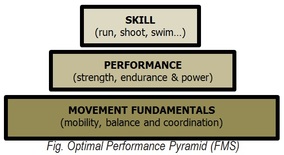Kozushi
Level 7 Valued Member
I realize that martial arts are quite various but I wonder what people who train in both martial arts and in weightlifting think about the overall relationship between strength and martial arts.
In my opinion, strength is much more important than technique as strength is necessary to make the techniques work and the techniques are much easier to learn if you already are strong.
I'm a judo guy for close to 30 years (who also did a lot of BJJ and MMA stuff over the years too, and some karate and similar) and also I did about 5 years total of Kendo and about 2 of Fencing.
What I think is that strength is technique, and the strength movements of weightlifting, especially the Strongfirst ones, are also the movements of combat. For instance, the one handed kettlebell swing is perfect pulling technique to start almost all judo throws. The press and the clean and press are both a punch. The Turkish get up is loads of things, but among them, BJJ "sweeps" (and even marksmanship according to the S&S book). The snatch is a sword cut.
In my opinion, strength is much more important than technique as strength is necessary to make the techniques work and the techniques are much easier to learn if you already are strong.
I'm a judo guy for close to 30 years (who also did a lot of BJJ and MMA stuff over the years too, and some karate and similar) and also I did about 5 years total of Kendo and about 2 of Fencing.
What I think is that strength is technique, and the strength movements of weightlifting, especially the Strongfirst ones, are also the movements of combat. For instance, the one handed kettlebell swing is perfect pulling technique to start almost all judo throws. The press and the clean and press are both a punch. The Turkish get up is loads of things, but among them, BJJ "sweeps" (and even marksmanship according to the S&S book). The snatch is a sword cut.

